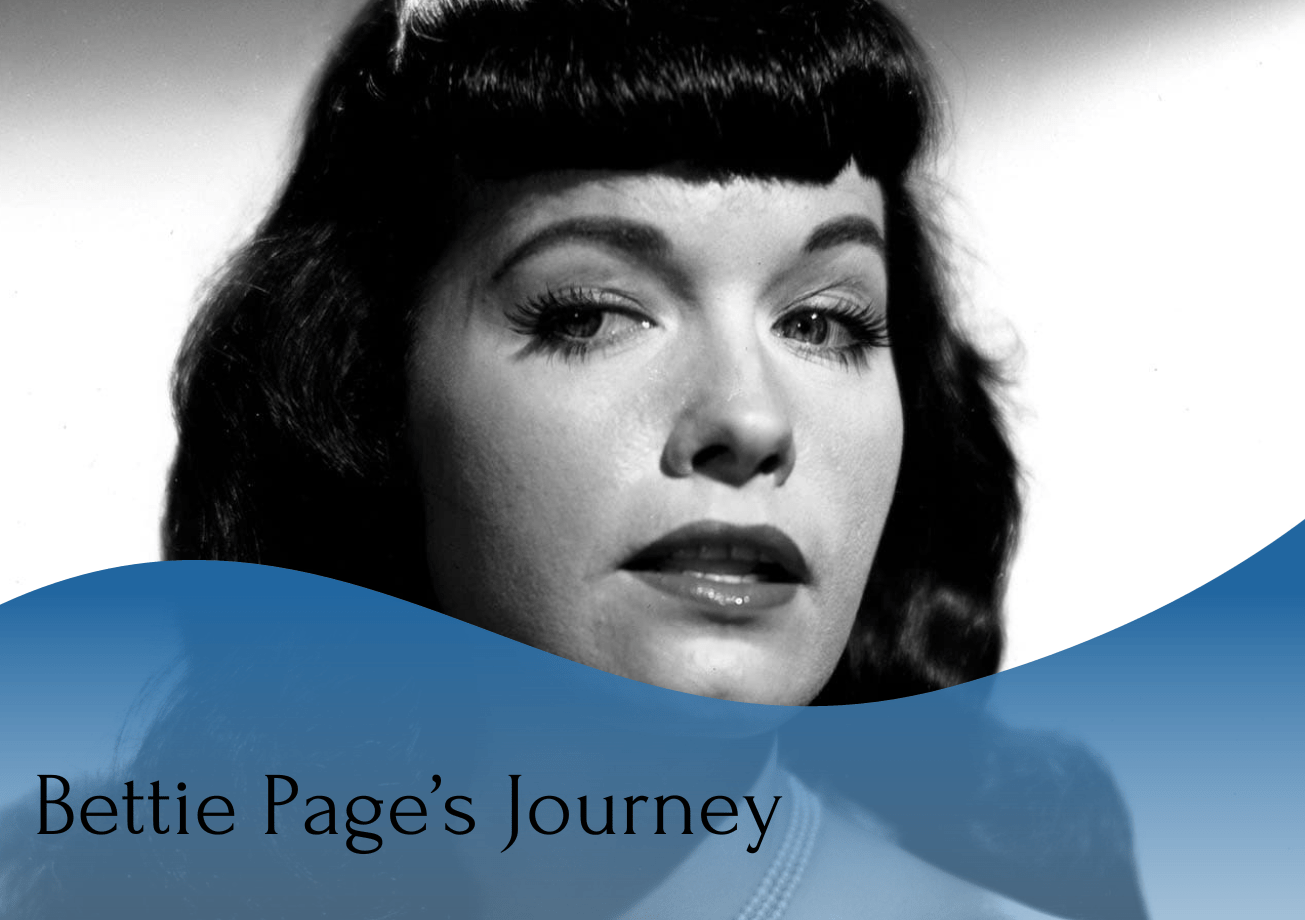Bettie Page’s journey from the streets of Nashville to the heights of New York’s modeling scene is a testament to her resilience and adaptability. See more.
Early Life in Nashville
Bettie Mae Page was born on April 22, 1923, in Nashville, Tennessee, into a turbulent family environment. Her childhood was marred by hardships; her parents divorced when she was young, and she spent a significant part of her early years in an orphanage. Despite these challenges, Bettie’s upbringing in Nashville instilled in her a certain toughness and the ability to adapt to changing circumstances.
Education and Early Career
Page’s intelligence and talent shone through early on. She graduated as the salutatorian of her high school class and earned a scholarship to study at Peabody College, part of Vanderbilt University in Nashville. This educational background was uncommon for a woman in that era, especially one who would later become a pin-up model. After college, she briefly worked as a schoolteacher in Nashville but found the profession unsatisfying, which led her to seek opportunities elsewhere.
Move to New York and Modelling Career
In the late 1940s, Bettie moved to New York City with dreams of becoming an actress. It was here that her modeling career began, almost by chance. She was discovered by a police officer who worked part-time as a photographer, and her natural ease in front of the camera soon became evident. Page’s modeling career took off, and she became known for her pin-up photos, which were both playful and risqué, a combination that was rare at the time.
Iconic Pin-Up and Fetish Model
Bettie Page’s unique look, characterized by her jet-black hair with a signature fringe, set her apart in the modeling world. She posed for camera clubs, which were a way for models and photographers to create images outside the strictures of the conservative 1950s media. Her willingness to pose for images that included bondage and other fetish themes was groundbreaking. These photos, while controversial, played a significant role in bringing such imagery into a more mainstream light, albeit slowly.
The Notorious Klaw Photoshoots
Page worked with Irving Klaw, a photographer known for his fetish and bondage-themed images. The “Klaw photoshoots” further cemented Bettie’s status as a pin-up icon. These images, while considered tame by today’s standards, were revolutionary for their time and contributed to a growing conversation about sexuality and expression in the conservative climate of the 1950s.
Film Appearances
Bettie Page also dabbled in film, appearing in a series of short films known as “camera club movies.” These films, often including light-hearted striptease and burlesque elements, further amplified her popularity and solidified her status as a pop culture phenomenon.
Impact on Fashion and Pop Culture
Bettie Page’s influence extended beyond photography and film. Her unique style, particularly her iconic hair and bangs, became a fashion statement, inspiring countless women and fashion designers. She became a symbol of uninhibited sexuality and freedom, challenging the norms of her time.
Retirement and Later Life
In the late 1950s, at the peak of her popularity, Bettie Page disappeared from the public eye. She turned to religion and led a private life, away from the glitz and glamour of her modeling career. Her later years were marked by personal struggles and a relative obscurity, a stark contrast to her image as a vibrant pin-up model.
Rediscovery and Legacy
In the 1980s, Bettie Page experienced a resurgence in popularity. A new generation discovered her images, and she became an icon of retro and vintage fashion. Her influence can be seen in various aspects of pop culture, from fashion and photography to music and film.
An Iconic Journey
Bettie Page’s journey from the streets of Nashville to the heights of New York’s modeling scene is a testament to her resilience and adaptability. Her boldness in embracing her sexuality and pushing the boundaries of societal norms made her a pioneer in the world of pin-up and fetish photography. Even though she spent her later years away from the limelight, her legacy continues to inspire and influence. Bettie Page remains a symbol of empowerment, a fashion icon, and a key figure in the history of 20th-century pop culture.







Recent Comments